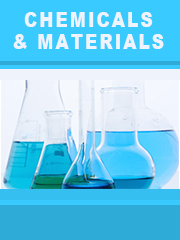Report overview
Reactive Alumina is a form of aluminum oxide that is very porous and bonds with certain liquids and gases without its chemical or physical form changing. Due to its high porosity, it has a high ratio of surface area to weight. It is commonly used as a desiccant, for water treatment, and as a catalyst in natural gas and refining operations.
This report aims to provide a comprehensive presentation of the global market for Reactive Alumina, with both quantitative and qualitative analysis, to help readers develop business/growth strategies, assess the market competitive situation, analyze their position in the current marketplace, and make informed business decisions regarding Reactive Alumina. This report contains market size and forecasts of Reactive Alumina in global, including the following market information:
Global Reactive Alumina Market Revenue, 2018-2023, 2024-2029, ($ millions)
Global Reactive Alumina Market Sales, 2018-2023, 2024-2029, (K MT)
Global top five Reactive Alumina companies in 2022 (%)
The global Reactive Alumina market was valued at US$ 866.4 million in 2022 and is projected to reach US$ 1248.6 million by 2029, at a CAGR of 5.4% during the forecast period. The influence of COVID-19 and the Russia-Ukraine War were considered while estimating market sizes.
The major players in global Reactive Alumina market include Honeywell International Inc (UOP), Axens, BASF SE, etc. The top 3 players occupy about 50% shares of the global market. North America and Asia-Pacific are main markets, they occupy about 75% of the global market. Sphered Form Reactive Alumina is the main type, with a share about 85%. Fluoride Adsorbent is the main application, which holds a share about 35%.
We surveyed the Reactive Alumina manufacturers, suppliers, distributors and industry experts on this industry, involving the sales, revenue, demand, price change, product type, recent development and plan, industry trends, drivers, challenges, obstacles, and potential risks.
Total Market by Segment:
Global Reactive Alumina Market, by Type, 2018-2023, 2024-2029 ($ Millions) & (K MT)
Global Reactive Alumina Market Segment Percentages, by Type, 2022 (%)
Powdered Form Reactive Alumina
Sphered Form Reactive Alumina
Global Reactive Alumina Market, by Application, 2018-2023, 2024-2029 ($ Millions) & (K MT)
Global Reactive Alumina Market Segment Percentages, by Application, 2022 (%)
Fluoride Adsorbent
Desiccant
Catalyst
Refractory Additives
Others
Global Reactive Alumina Market, By Region and Country, 2018-2023, 2024-2029 ($ Millions) & (K MT)
Global Reactive Alumina Market Segment Percentages, By Region and Country, 2022 (%)
North America
US
Canada
Mexico
Europe
Germany
France
U.K.
Italy
Russia
Nordic Countries
Benelux
Rest of Europe
Asia
China
Japan
South Korea
Southeast Asia
India
Rest of Asia
South America
Brazil
Argentina
Rest of South America
Middle East & Africa
Turkey
Israel
Saudi Arabia
UAE
Rest of Middle East & Africa
Competitor Analysis
The report also provides analysis of leading market participants including:
Key companies Reactive Alumina revenues in global market, 2018-2023 (Estimated), ($ millions)
Key companies Reactive Alumina revenues share in global market, 2022 (%)
Key companies Reactive Alumina sales in global market, 2018-2023 (Estimated), (K MT)
Key companies Reactive Alumina sales share in global market, 2022 (%)
Further, the report presents profiles of competitors in the market, key players include:
Honeywell International Inc (UOP)
Axens
BASF SE
CHALCO
Huber
Porocel Industries
Sumimoto
Shandong Boyang New Materials
Jiangsu Sanji
Jiangsu Jingjing New Material
Sorbead India
Outline of Major Chapters:
Chapter 1: Introduces the definition of Reactive Alumina, market overview.
Chapter 2: Global Reactive Alumina market size in revenue and volume.
Chapter 3: Detailed analysis of Reactive Alumina manufacturers competitive landscape, price, sales and revenue market share, latest development plan, merger, and acquisition information, etc.
Chapter 4: Provides the analysis of various market segments by type, covering the market size and development potential of each market segment, to help readers find the blue ocean market in different market segments.
Chapter 5: Provides the analysis of various market segments by application, covering the market size and development potential of each market segment, to help readers find the blue ocean market in different downstream markets.
Chapter 6: Sales of Reactive Alumina in regional level and country level. It provides a quantitative analysis of the market size and development potential of each region and its main countries and introduces the market development, future development prospects, market space of each country in the world.
Chapter 7: Provides profiles of key players, introducing the basic situation of the main companies in the market in detail, including product sales, revenue, price, gross margin, product introduction, recent development, etc.
Chapter 8: Global Reactive Alumina capacity by region & country.
Chapter 9: Introduces the market dynamics, latest developments of the market, the driving factors and restrictive factors of the market, the challenges and risks faced by manufacturers in the industry, and the analysis of relevant policies in the industry.
Chapter 10: Analysis of industrial chain, including the upstream and downstream of the industry.
Chapter 11: The main points and conclusions of the report.
